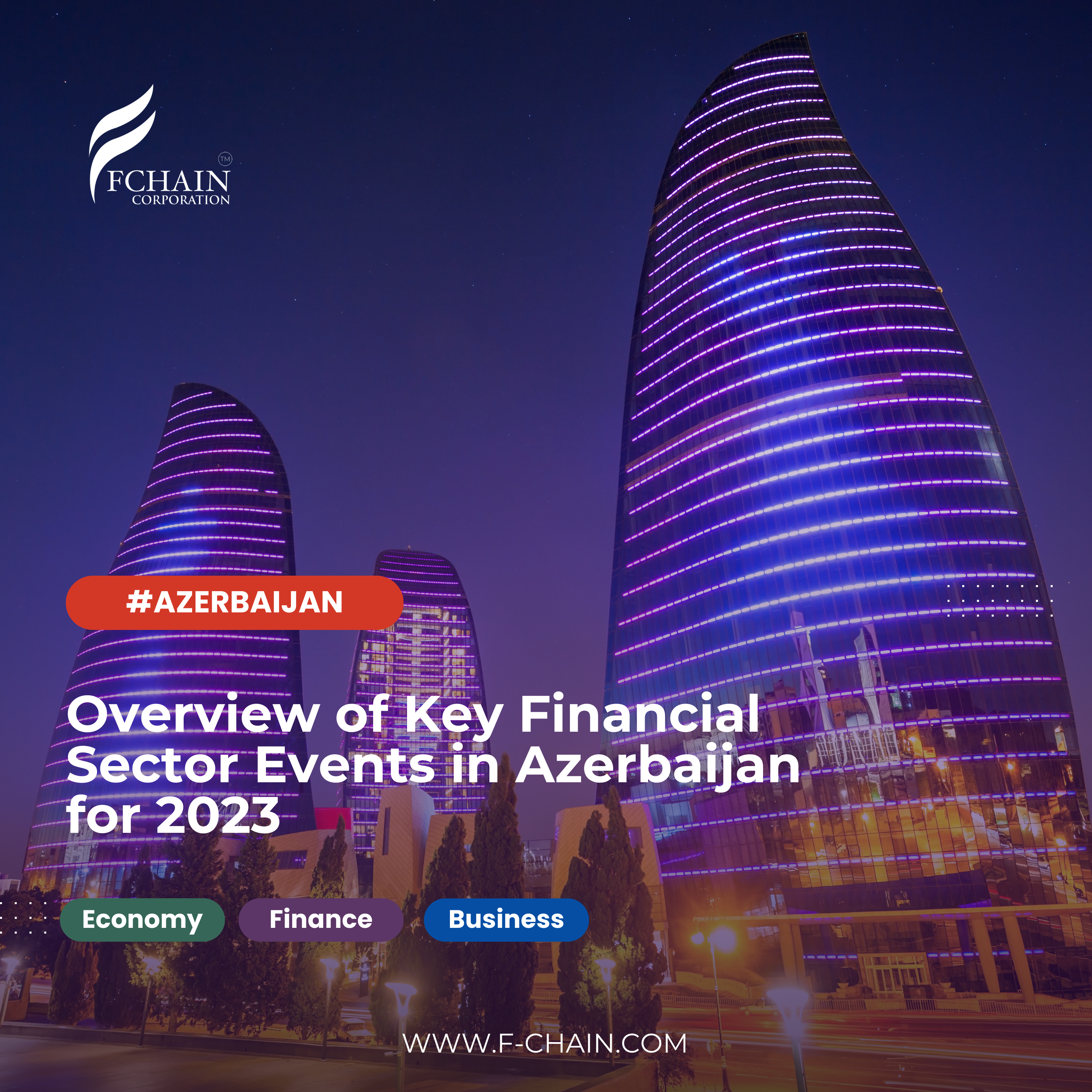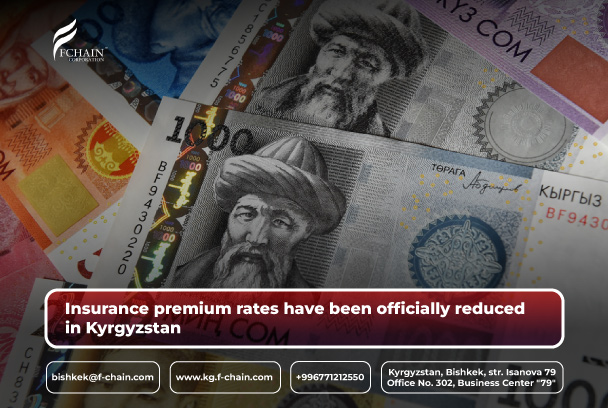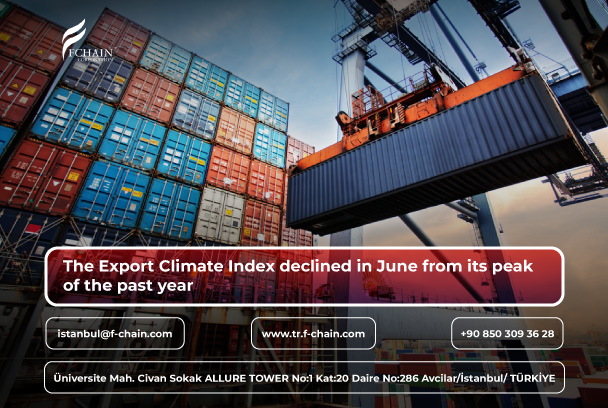Banking Sector
One of the pivotal events this year in Azerbaijan was the parliamentary discussion of a bill amending the “On the Central Bank” law. The proposal grants the Central Bank the authority to enter agreements and contracts, allowing negotiations and collaborations with central banks of other countries, international financial institutions, and entities, including clearing and other agreements.
In a significant collaboration, financial regulators of Azerbaijan and Tajikistan signed a memorandum of understanding. The memorandum aims to facilitate collaborative research trips, exchange experiences, discuss pertinent issues, conduct training programs, internships, seminars, and offer technical consultations within the banking sector.
The Association of Banks of Azerbaijan (ABA) and the Association of Banks of Hungary also inked a memorandum of cooperation this year. This memorandum outlines cooperation in organizing joint events, educational programs, information exchange among member banks of both organizations, fostering correspondent relationships, and undertaking activities related to the banking and financial sector.
Moreover, ABA and the Union of Banks of Turkey signed a memorandum focused on organizing joint events and advancing the financial sector’s development.
Additionally, ABA and the International Finance Corporation entered into an agreement covering collaboration in environmental, social, and corporate governance, aiming to ensure financial stability in Azerbaijan.
Turning to interest rates, it’s noteworthy that the Central Bank of Azerbaijan (CBA) decided to increase the discount rate from 8% to 8.25% in December 2022. The upper limit of the interest rate corridor remained at 9.25%, while the lower limit increased by 1.25% to 6.25%. In the current year, CBA further raised the discount rate by 0.25 percentage points to 8.5%. The upper limit of the interest rate corridor was raised to 9.5%, and the lower limit to 6.75%.
In other developments, at the beginning of the year, the CBA approved new reserve requirements for banks, covering various types of deposits and ensuring financial stability.
Additionally, the CBA introduced a new feature on its electronic service portal, enabling citizens to access information about their credit history from the Centralized Credit Registry.
Furthermore, the CBA is crafting a strategy for the financial sector’s development, addressing priority issues to resolve challenges within the sector.
In the first half of the current year, the European Bank for Reconstruction and Development (EBRD) expressed interest in exploring new infrastructure projects in Azerbaijan. These projects align with the bank’s policy and standards, covering environmental, sustainability, procurement, and financial aspects. EBRD plans to sign investment contracts with three Azerbaijani banks in 2023, reinforcing local financial institutions and stimulating financial market growth.
In addition, it was reported that the EBRD is ready to reassess its strategy for Azerbaijan.
“Azerbaijan is diligently working towards creating more opportunities for investors looking to leverage its abundant natural resources, strategic location, and growing private sector. As outlined in the country’s 2030 program, present-day Azerbaijan prioritizes market reforms, business-friendly governance, and trade liberalization,” emphasized the EBRD representative.
According to Mouravidge, these principles will be considered in the upcoming EBRD country strategy. As the review period approaches, the bank is gearing up for collaboration with government bodies, clients, and partners.
“What I can confidently say at this stage is that diversification and greening of Azerbaijan’s economy, along with our efforts to expand local businesses’ access to financing, will remain our main priorities in the country,” she concluded.
In the current year, the Central Bank of Azerbaijan and the European Bank for Reconstruction and Development discussed the establishment of a local credit agency.
It was also reported that the Black Sea Trade and Development Bank (BSTDB) is developing a portfolio of new projects in Azerbaijan. Furthermore, the BSTDB is in negotiations with several financial institutions in Azerbaijan, aiming to expand its network of partner banks.
Additionally, the BSTDB disclosed its project portfolio by country. As of January 1, 2023, the current portfolio for projects in Azerbaijan amounted to €12.649 million.
A significant event in the banking sector this year was the launch of fee-free money transfers from Turkey to Azerbaijan. The Turan app, operating for the first time beyond Turkey’s borders, commenced its services in Azerbaijan. It was also reported that the Turkish financial company “Turan Teknoloji Anonim Şirketi” (Turan) would facilitate fee-free money transfers via bank cards from Azerbaijan to Turkey.
Furthermore, it became known that new digital solutions for money transfers are under development in Azerbaijan.
In the current year, the Islamic Corporation for the Insurance of Investment and Export Credit (ICIEC), part of the Islamic Development Bank Group (IsDB), welcomed Azerbaijan as its 49th member state.
“Azerbaijan’s membership opens doors for its private and public sectors to benefit from risk mitigation and credit enhancement solutions offered by ICIEC, facilitating the expansion of exports and attracting foreign direct investment. Similarly, this allows exporters, banks, and investors from other member states and beyond to cover political and commercial risks associated with their operations in Azerbaijan,” commented Usama Kaissi, the CEO of ICIEC.
This year saw the Central Bank of Azerbaijan (CBA) announce the application of financial sanctions to credit institutions violating rules on reserve calculation and maintenance.
According to the changes, the CBA can impose a financial sanction of double the average daily rate of the currency subject to preservation on the unsecured amount of mandatory reserves during the reporting period and triple the average daily rate if the violation occurs three or more times within the calendar year.
Additionally, the abolishment of daily limits on amounts transferred abroad by individuals was a notable development (previously set at USD 1000).
Moreover, a monthly limit of up to USD 20,000 in equivalent was introduced for transfers (irrespective of form) without opening or from an account. Furthermore, individuals are now allowed to pay transportation and hotel expenses related to trips abroad for other persons.
It was also revealed that through payment cards issued in Azerbaijan, resident individuals can cash out up to USD 10,000 in foreign countries during a calendar month.
Furthermore, it has been revealed that non-traditional players in Azerbaijan’s financial market will be authorized to issue payment cards.
It was also reported that the Central Bank of Azerbaijan (CBA), in collaboration with the International Finance Corporation (IFC), is formulating a fintech strategy for the years 2024-2028. By the first of May next year, licensing of payment and electronic money organizations operating in Azerbaijan is scheduled to take place.
In the current year, it was announced that Bank of Baku will settle a long-term loan from the CBA in the coming year.
Speaking of major events, we cannot overlook the signing of a $10 million letter of credit contract between the Azerbaijani Rabitabank and the International Islamic Trade and Finance Corporation (ITFC).
As noted by the bank, this historic agreement, the first of its kind in Azerbaijan, will play a pivotal role in advancing trade finance in the private sector based on Islamic financing principles.
It was also highlighted that the ITFC is exploring opportunities to expand Islamic financing transactions in Azerbaijan.
“In discussing the prospects of implementing Islamic financial instruments, we see a positive start in cooperation, such as with Rabita Bank, and anticipate active exploration and implementation of Islamic financial products. Transforming existing banks or establishing specialized units for Islamic banking, in our view, is inevitable, as the mechanisms of this financial system are quite feasible and align with the region’s needs. These steps can have a positive impact on the economic development of Azerbaijan and neighboring regions,” stated Hani Salem Sonbol, the Executive Director of ITFC.
The ITFC expresses interest in more actively participating in financing crucial projects in Azerbaijan, aligning with the organization’s development plans until 2030. Additionally, ITFC sees potential in deepening cooperation with Azerbaijan.
ITFC Executive Anticipates Robust Collaboration with Azerbaijan Through Flagship Program
Hani Salem Sonbol, the Executive Director of the International Islamic Trade and Finance Corporation (ITFC), a member of the Islamic Development Bank Group (IsDB), remarked that the flagship program “Trade Connect Central Asia+” (TCCA+) will contribute to fostering future collaboration between ITFC and Azerbaijan.
“The TCCA+ program aims to achieve inclusive economic growth, regional economic cooperation, and streamline trade procedures among OIC member countries, CIS, and the rest of the world. The ITFC’s flagship program is focused on expanding and developing trade among six countries—Azerbaijan, Kazakhstan, Kyrgyzstan, Tajikistan, Turkmenistan, and Uzbekistan. By leveraging the potential of regional markets, the ‘Trade Connect Central Asia+’ program aims to unlock potential opportunities for intra-regional trade, estimated at $600 million in the target region over the next five years, as well as create opportunities for trade and investments worth billions of dollars with other regions covered by the OIC. Aimed at increasing regional exports and diversifying the export base towards higher value-added products, the program will contribute to economic growth. ITFC hopes to launch this program early next year,” he noted.
Additionally, this year saw the Asian Development Bank (ADB) and Bank “Respublika” sign a credit agreement, where the bank will receive a manat-denominated loan equivalent to $20 million.
In the departing year, it was also highlighted that a Corporate Governance Committee for banks will be established in Azerbaijan.
Looking ahead, it’s worth noting that by the end of March next year, Azerbaijani banks are required to prepare a new strategic plan in accordance with the “Corporate Governance Standards in Banks” approved by the Central Bank of Azerbaijan (CBA) and submit it to the regulatory authority.
According to information, banks must also evaluate the level of implementation of standards every three months and report their results to the institution.
In the current year, “Tinkoff Business” launched currency transfers to Azerbaijan, offering incoming and outgoing payments in Azerbaijani manats (AZN) to business clients.
In terms of recent appointments, Shahin Mahmudzade was appointed as an advisor to the Chairman of the Central Bank of Azerbaijan (CBA) this year. The World Bank appointed a new Regional Director for the South Caucasus, Roland Price, and Alkis Vriniotis Drakinos was appointed as the representative of the European Bank for Reconstruction and Development in the Caucasus.
In conclusion, it should be noted that in the current year, the Central Bank of Azerbaijan (CBA) revoked the licenses of OJSC “Gunay Bank” and OJSC “Muganbank.”
The CBA revoked the license of OJSC “Gunay Bank” because the bank’s aggregate capital is less than the established requirement of 50 million manats, and the capital adequacy ratio of the aggregate capital is less than three percent. In the case of “Muganbank,” the size of the aggregate capital is less than the minimum size established by law for banks, and the capital adequacy ratio of the aggregate capital is less than three percent. The bank does not conduct its current activities reliably and prudently, and due to inadequate internal management and control procedures.
Insurance sector:
Starting from January 1 of the 2023, the Central Bank of Azerbaijan (CBA) implemented a resolution specifying the amounts of one-time monetary payments made by insurers wishing to operate within the “Green Card” insurance system and the insurance premiums that would be applied by insurers entitled to operate within this system.
According to the resolution, the one-time payment within the “Green Card” system is set at 10,000 manats.
Insurance premiums for “Green Card” agreements for motor vehicles registered in Azerbaijan and heading to Turkey and Iran range from 12 to 440 manats; heading to Belarus, Moldova, Russia, and Ukraine – from 10 to 400 manats; and to other countries – from 30 to 1,200 manats. Insurance premiums for motor vehicles registered in Georgia and Kazakhstan and heading to Turkey, Iran, Belarus, Moldova, Russia, and Ukraine are set between 15 and 1,630 manats; for vehicles heading to other countries – from 30 to 2,389 manats.
It has also been announced that the Bureau of Compulsory Insurance of Azerbaijan has reached an agreement with the International Insurance Council to sell “Green Cards” by local insurance companies to drivers of vehicles registered in Georgia and Kazakhstan.
Furthermore, there are plans to introduce a mechanism similar to deposit insurance for investment companies in Azerbaijan.
Financial sector:
Central Bank of Azerbaijan Implements Cybersecurity Strategy and Introduces Investment Service Regulations
In the current year, the Central Bank of Azerbaijan (CBA) adopted the “Cybersecurity Strategy in Financial Markets,” aiming to establish a resilient cybersecurity environment in financial markets. The strategy encompasses activities focused on five strategic priorities: (I) strengthening the regulatory and supervisory framework for information security and cybersecurity in financial markets; (II) enhancing the cybersecurity risk management culture in financial markets; (III) developing an information technology management structure to enhance cybersecurity levels in financial markets; (IV) reinforcing cyber resilience in financial markets; (V) fostering a culture of information security and cybersecurity in financial markets. The central bank plans to continuously implement measures to ensure information security in the country’s financial sector, particularly in strengthening cyber resilience.
It has also been announced that Azerbaijan will define requirements for the implementation of investment services (transactions). According to the decree of the President of the Republic of Azerbaijan Ilham Aliyev “On Amendments to the Law of the Republic of Azerbaijan ‘On Securities Market'” dated July 6, 2023, No. 947-VIQD, the CBA is recommended to approve the requirements for the implementation of investment services (transactions) within six months and inform the President of the Republic of Azerbaijan. The CBA is also recommended to approve the procedure for conducting interviews with members of the executive body and the supervisory board of securities market licensees, as well as with the heads of branches of foreign investment companies within six months and inform the President of the Republic of Azerbaijan.
Moreover, the Baku Stock Exchange (BSE) is currently developing a strategic development plan for the exchange market for the period from 2024 to 2026.
In addition to all the aforementioned events, the Azerbaijani manat remained stable against the US dollar this year.
It is worth noting that, according to the report of the Asian Development Bank (ADB), the Azerbaijani manat is expected to maintain its peg to the dollar until at least 2026. The report emphasizes that this will be due to a significant reduction in pressure on the manat. In turn, analysts at the Dutch ING bank also predict that Azerbaijan will maintain the de facto peg of the manat to the US dollar at the level of 1.7 manats to one dollar until at least 2026. Analysts from the international rating agency S&P Global Ratings also expect this exchange rate to be maintained at least until 2026.





